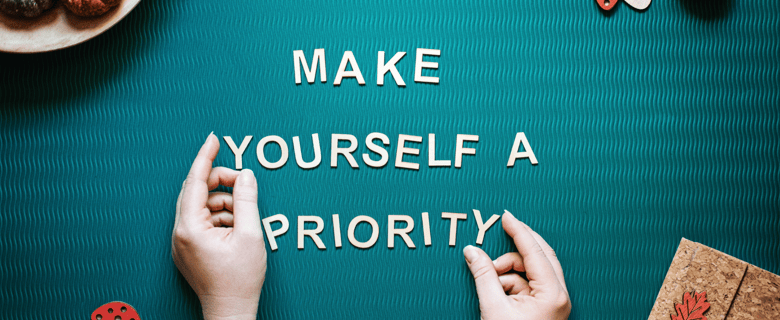"What we call love is often a reflection of our desires, fears, and the pull of chemistry; real love exists only when illusions fade."
How to Stop Abandoning Yourself in Relationships: 4 Steps to Build Self-love & Set Boundaries
Learn how to stop abandoning yourself in relationships with 4 proven steps: regulate emotions, set boundaries, build self-love, and reclaim authenticity. Discover emotional regulation tips, non-negotiables, and self-care strategies. Subscribe now for the full guide and start healing today!
MENWOMENSELF CAREAUTHENTIC SELF
Ellen Mouton
3/23/20256 min read



How to Stop Feeling Like You're Abandoning Yourself in Relationships: 4 Steps to Reclaim Your Authenticity
Do you often feel as though you are abandoning yourself in relationships? If you are an anxious attacher, you may have spent years prioritising the needs of others over your own, suppressing your desires, and constantly adjusting to the expectations of those around you, to the extent that you have lost touch with who you truly are. This does not imply that you intended to abandon yourself; rather, it is the result of learned coping strategies from childhood, often rooted in a lack of emotional validation or safety.
But here's the truth: you didn't abandon yourself. Your nervous system adapted to survive. Now, it's time to reconnect with your authentic self and regain your power in relationships.
In this article, I'll guide you through 4 key steps to stop feeling like you're abandoning yourself. I'll also cover why non-negotiables matter, how to regulate your emotions, and how to build a stronger foundation of self-love. Plus, I'll share how to break the cycle of self-abandonment for good.
Why You Didn't Abandon Yourself
If you feel disconnected or like you've lost yourself in toxic relationships, it's essential to understand that you didn't abandon yourself. Your coping mechanisms from childhood took over, driven by your need to feel safe and loved.
You might not have received the emotional support and validation you needed as a child. To survive, you adapted, becoming what others expected, suppressing your desires, or pleasing people. These survival strategies helped you cope, but as an adult, they may no longer serve you.
The key takeaway: you didn't abandon yourself; you were simply trying to survive. It's time to heal from those old patterns and rediscover who you truly are.
4 Key Steps to Stop Feeling Like You're Abandoning Yourself
Step 1: Reconnect with Your Body and Regulate Your Nervous System
Your body and nervous system are constantly communicating. When you feel overwhelmed, anxious, or like you've lost yourself, it's often because your nervous system is out of balance. Nervous system regulation can help you calm down, regain emotional control, and feel more connected to yourself.
Practice deep breathing, grounding exercises, and mindfulness to regulate your emotions and bring yourself back to the present moment. By getting in touch with your body, you begin to reconnect with your inner self, which is the first step to healing.
Step 2: Establish Boundaries and Identify Your Non-Negotiables
Non-negotiables are the values, boundaries, and standards you refuse to compromise in any relationship. They're critical for protecting your sense of self. Without non-negotiables, it's easy to lose yourself trying to meet others' expectations or tolerate mistreatment.
To stop feeling abandoned by yourself, identify what you absolutely need in a relationship to feel safe, respected, and loved. For example, honesty, respect, and emotional support might be some of your non-negotiables. Setting these boundaries ensures you maintain your integrity and sense of self.
Step 3: Build a Strong Foundation of Self-Love
To stop abandoning yourself, you must first learn to love yourself unconditionally. Self-love goes beyond affirmations; it's about actively meeting your own needs. This involves prioritising your well-being, trusting your instincts, and treating yourself with kindness and compassion.
Make time for self-care practices that nourish your mind, body, and spirit. Journaling, meditation, and setting aside time for things that bring you joy are just a few ways to nurture yourself actively. As you build a strong self-love foundation, you'll find that you don't need external validation to feel worthy; you'll already feel enough.
Step 4: Break the Cycle and Practice Authenticity
Healing means breaking old patterns and learning to show up authentically in relationships. Authenticity is the key to feeling like you're not abandoning yourself.
It may feel uncomfortable initially, but practising authenticity involves speaking your truth, setting boundaries, and showing up as you truly are without fear of judgement or rejection. The more you embrace your true self, the more you'll break the cycle of self-abandonment and create healthier, more fulfilling relationships.


What Are Non-negotiables and Why Are They Important?
Non-negotiables are the values, boundaries, and standards you can never compromise on in relationships. They help protect your emotional health and self-respect. When you have clear non-negotiables, you're less likely to get lost in toxic dynamics or become a people-pleaser.
For example, honesty might be one of your non-negotiables. You can't have a healthy relationship if trust isn't mutual. Other non-negotiables might include emotional support, mutual respect, or accountability.
Identifying and setting these non-negotiables is an act of self-respect; it shows that you value yourself enough to hold firm to your needs and boundaries.
If you want to discover the 7 crucial non-negotiables to reconnect with your authentic self, subscribe to my full, unfiltered newsletter at newsletter.ellenmouton.com. You'll gain access to the complete guide, including detailed steps, actionable tools, and exclusive resources to help you stop self-abandonment and build healthier relationships.
Emotional Regulation: Why It Matters
Emotional regulation is the ability to manage your emotions in a healthy and productive way. It involves recognising, understanding, and responding to your emotions without allowing them to overwhelm or control you. Without emotional regulation, you may react impulsively or feel emotionally overwhelmed. In contrast, when you regulate your emotions, you create space to respond thoughtfully, manage stress, and avoid emotional burnout.
Here are 3 Key Tips to Regulate Your Emotions:
Notice Your Triggers: Pay attention to the people, situations, or thoughts that trigger intense emotional reactions. Awareness is the first step to managing your response.
Self-Soothing Techniques: When your nervous system becomes activated, use deep breathing, visualisation, or progressive muscle relaxation to calm it down. These practices help ground you in the present moment and ease emotional distress.
Reframe Your Thoughts: Negative emotions are often linked to distorted thinking patterns. Challenge your automatic thoughts by asking, "Is this really true?" Shifting your perspective can help you regain emotional control.
Breaking the Cycle of Emotional Dependency
One of the most important aspects of rebuilding your relationship with yourself is breaking the cycle of emotional dependency. When you place your emotional well-being solely in someone else's hands, it often leads to feelings of loss, inadequacy, or overwhelm.
Building a healthy sense of self-worth and independence means having clear non-negotiables and emotional regulation tools. These practices help you break the cycle and create lasting, fulfilling relationships with others and yourself.
Ready to Take Action?
You didn't abandon yourself; you were simply surviving. It's time to start healing, reconnecting, and building a life without losing yourself in relationships.
If you're ready to dive deeper into these strategies and reclaim your authenticity, subscribe to my full, unfiltered newsletter at newsletter.ellenmouton.com. You'll gain access to the complete guide, including detailed steps, actionable tools, and exclusive resources to help you stop self-abandonment and build healthier relationships.
📌 Download my Practical Self-Love Guide: Concrete Actions to Stop Self-Abandonment. Download here
📌 Break Free from Toxic Cycles: Uncover hidden patterns that keep you stuck in toxic relationships and bad dating cycles. Download here.
📌 Get my Dating Checklist to spot red flags and avoid repeating unhealthy patterns. Download here.
📌 Book a Clarity Call if you're ready for deeper support. Book here
You deserve to be your authentic self in every relationship. It's time to start reclaiming your power.
Recommended Reading
“The Female Brain” by Louann Brizendine (Buy on Amazon)
“Why Men Love Sex, and Women Love Love” by Allan and Barbara Pease (Buy on Amazon)
“The Chemistry Between Us” by Larry Young and Brian Alexander (Buy on Amazon)
Further Exploration
Videos:
Oxytocin, Vasopressin, and Dopamine’s Role in Bonding: A video that delves into the roles of these hormones in romantic relationships and bonding.
youtube.comDr. Tara Swart — What Science Says About Non-Monogamy: In this discussion, Dr. Tara Swart explores the neuroscience behind monogamous and non-monogamy relationships, shedding light on evolutionary mating strategies.
youtube.com
Articles:
Oxytocin, Dopamine, and Opioid Interactions Underlying Pair Bonding
Behavioural and cardiovascular consequences of disrupted oxytocin communication in cohabitating pairs of male and female prairie voles . Soc Neurosci. 2019. Read here.
Oxytocin Modulates Social Distance between Males and Females
November 14, 2012 — Research on monogamous mammals, particularly prairie voles, has shown that the neuropeptide oxytocin (OXT) promotes the formation of pair-bonds . Read here.
Love and the Brain | Harvard Medical School
Released during sex and heightened by skin-to-skin contact, oxytocin deepens feelings of attachment and makes couples feel closer to one another after having. Read here.
Ellen Mouton
Affiliate Disclaimer:
This article contains affiliate links. As an Amazon Associate, I earn from qualifying purchases. It is at no extra cost to you.
